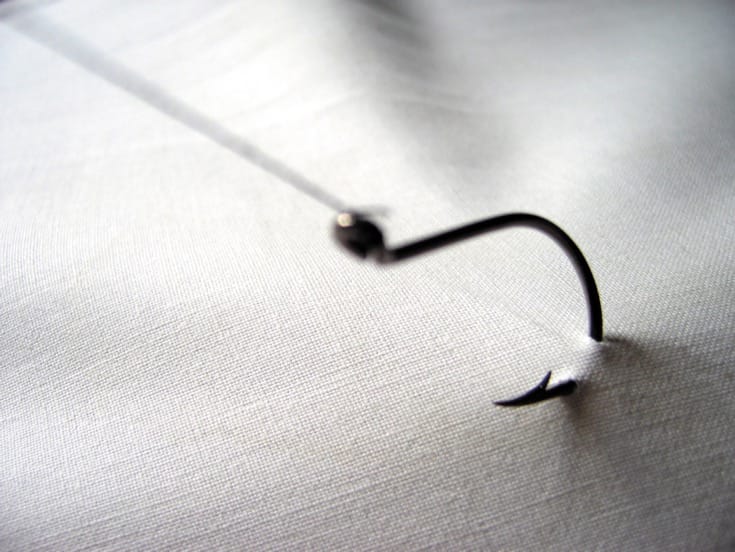Pema Chödrön famously introduced us to the notion of shenpa, which she defines as “biting the hook” of our habitual reactions.
When someone leaves us, we may bite the hook of grasping. When something unfair happens, we may bite the hook of rage. When we are disappointed, we may bite the hook of numbness. What would it look like to not bite the hook? What is non-shenpa?
If you ever had an interest in exploring this answer, now would be a great time to begin. A giant hook with a massive comb-over has just been lowered from bizarro-world. Now what? I don’t mean to make light or demean anyone for their political views, but, let’s face it, we have elected an inexperienced, vengeful person to office. Now what? Falling into our habitual reactions will not benefit ourselves or others. It will not help us act skillfully to protect the vulnerable and start our country moving forward again as quickly as possible. Here are five ways to help you not bite the Trump hook:
1. Remind yourself that generosity is a gesture of power.
Rather than scanning the environment for confirmation or denial of your worst fears, scan it for someone who could use a kind word or glance. It can be that simple. Whether we are swinging on the hook of grasping, aggression, or numbness, there is one sure way off: to help someone who is also swinging. This is a really good thing to do for others, but also it is good for yourself. When we are afraid, we feel powerless. Generosity is a gesture of power.
2. Remember that nothing is ever as good as you hope or as bad as you fear.
One day at a time. One. Day. And beyond this, one thought, one moment, one heartbeat. This, by the way, is why we practice meditation, which is not a life hack to become more awesome. Meditation is a path of fierce warriorship. It teaches you how to meet your experience on the spot, without embellishment, fully and courageously. That includes looking directly at your hopes and fears.
3. Reestablish dominion over your world.
Your life—your home, family, friends, workplace, body, abilities—is your kingdom. You have full rulership there. What can you do for your world? What or who needs tending? What needs to be added or eliminated? This is a time to look squarely at the piece of land that you are responsible for. Because all bets are off, we could feel encouraged to focus on what is really essential. Most important, we could focus on removing every obstacle that stands between us and doing our true work in the world. We need you to own your brilliance, stop pulling punches, and offer your gifts.
4. Express your love for your brothers and sisters.
On one level, this means recognizing the vast tribe that feels as you do right now—that there is no place in America for hatred, racism, misogyny, anti-Semitism, homophobia, or religious intolerance. Reach out to each other. Affirm your friendship. But please don’t stop there. You could also recognize the vast tribe that does not feel as you do right now. I’m not suggesting that we get all snuggly with hatemongers, but to acknowledge that we are all Americans. If we excise tens of millions of our brothers and sisters from our minds and hearts, we add innumerable steps to the path out.
5. Finally: feel what you feel.
As best you can, don’t pretend you aren’t scared, sad, angry, and shocked. There’s no problem having those feelings, as painful as they are. What is a problem is to avoid what you feel and then, as humans tend to, work it out on someone else by vilifying them. This is very dangerous. We stand at the intersection of tolerance and hatred. I’m not saying there aren’t terrible people who shouldn’t be held accountable for the things they have done. But biting the hook of grasping, aggression, or numbness prevents us from seeing clearly the best course of action to take our country back.

